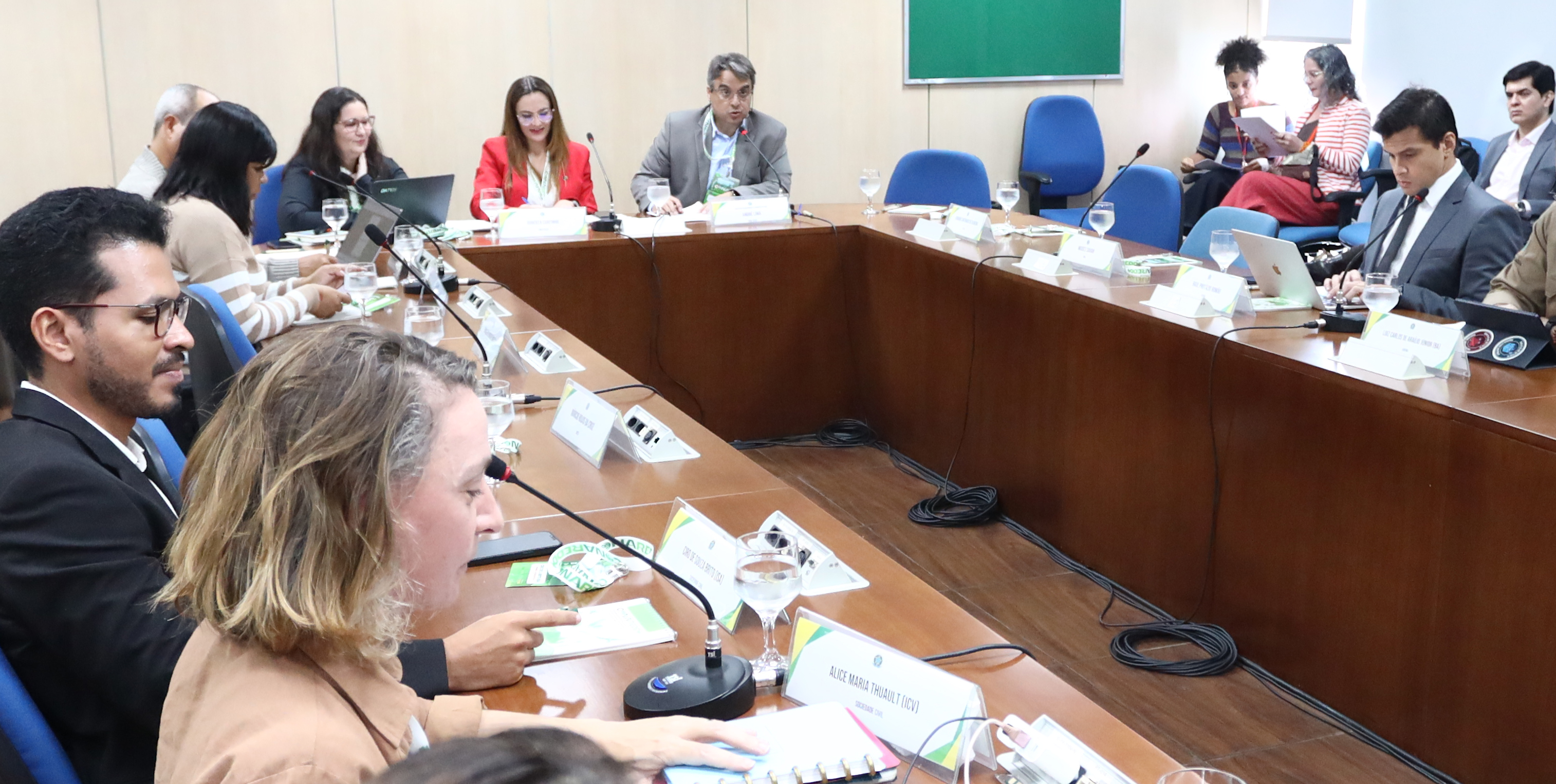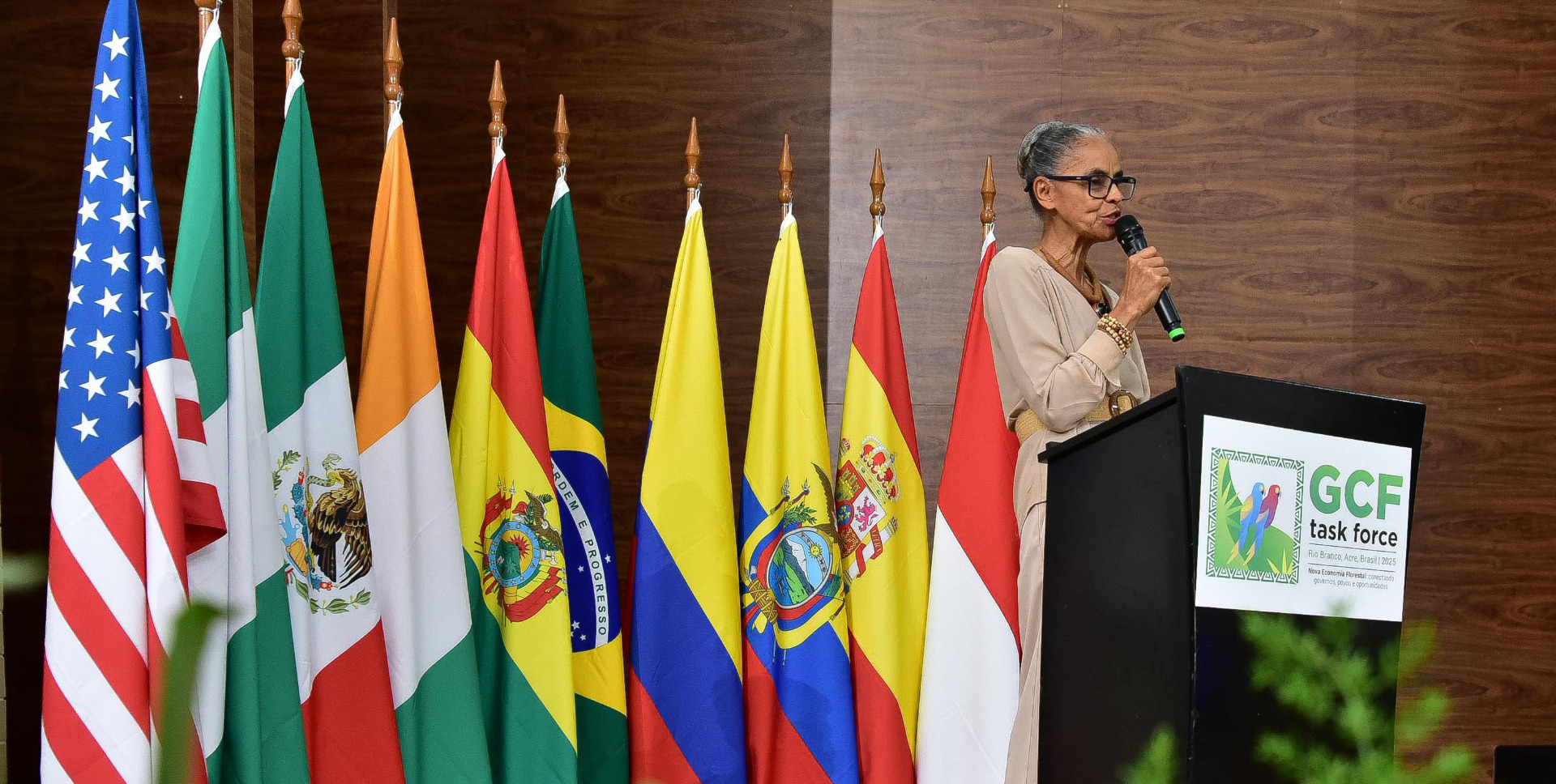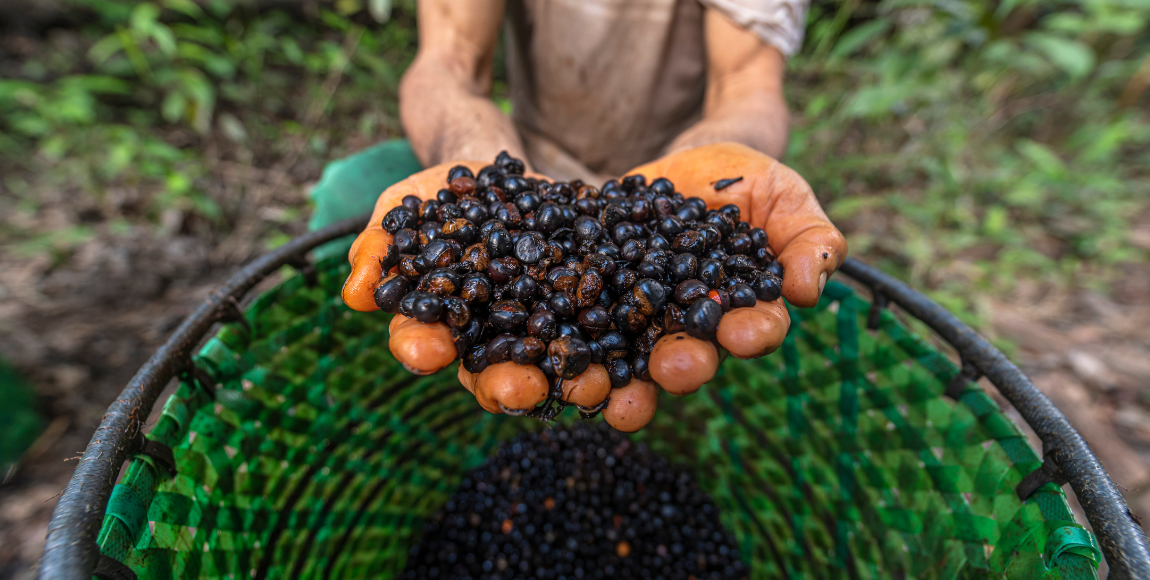REDD+
Publicado em
17/03/2025 11h36
Atualizado em
12/08/2025 18h00
REDD+ é um incentivo desenvolvido no âmbito da Convenção-Quadro das Nações Unidas sobre Mudança do Clima (UNFCCC) para recompensar financeiramente países em desenvolvimento por seus resultados de Redução de Emissões de gases de efeito estufa provenientes do Desmatamento e da Degradação florestal, considerando o papel da conservação de estoques de carbono florestal, manejo sustentável de florestas e aumento de estoques de carbono florestal (+).
Últimas notícias

Meio Ambiente e Clima























